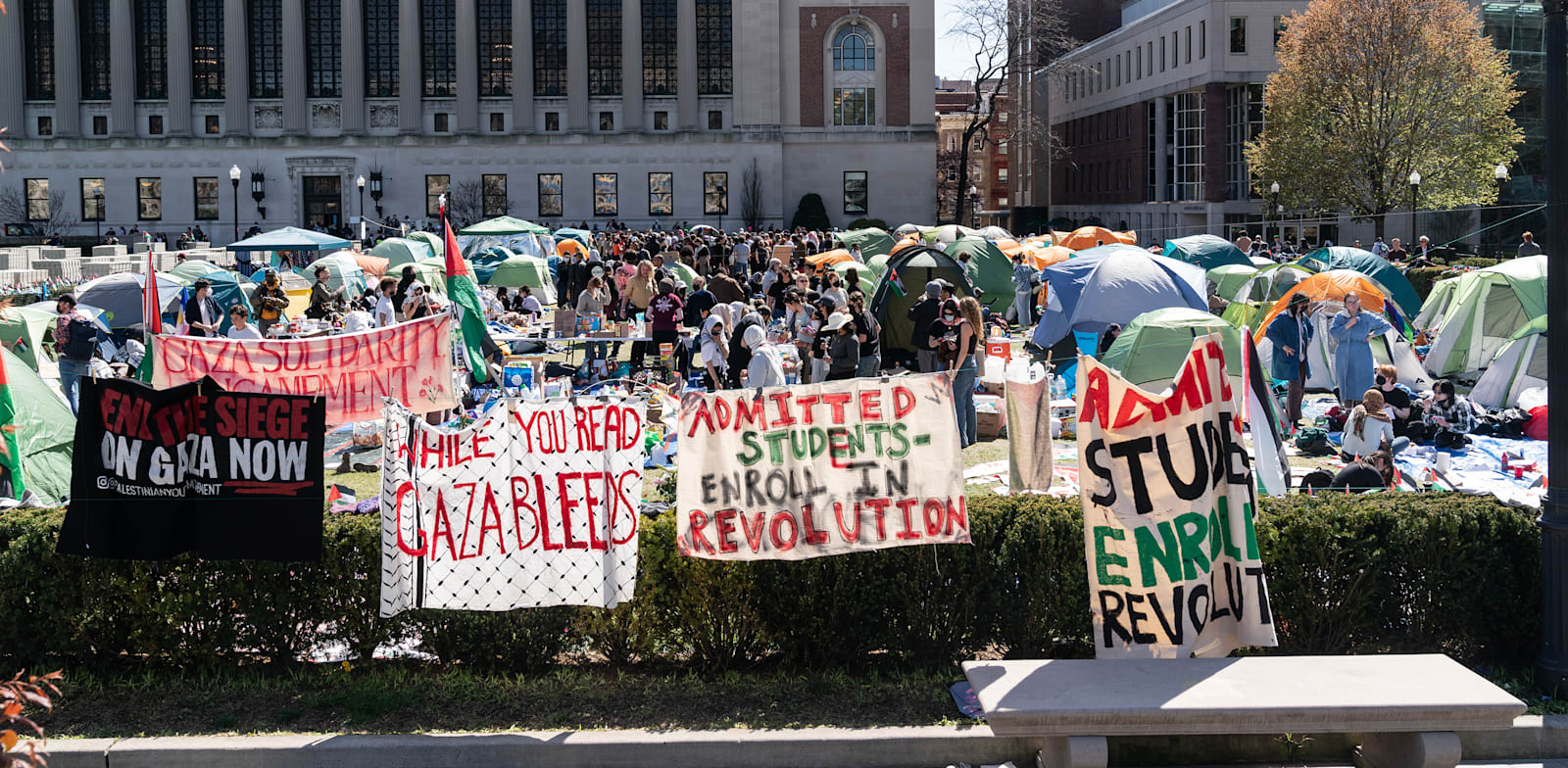Columbia University in New York has become the focal point of escalating protests by pro-Palestinian students and activists in the US. Face-to-face classes were canceled, and dozens were arrested at Yale University for setting up a tent camp advocating for the liberation of Gaza. Mayor Eric Adams of New York condemned the rise of anti-Semitism at the university, calling for law enforcement intervention.
Amidst these demonstrations, Shafik, president of Columbia University, faced challenges regarding the university’s ties with Israel and its treatment of Israeli and Jewish students. Following a congressional hearing addressing these issues, she reaffirmed the university’s commitment to upholding regulations that prohibit hate speech and discrimination against Jewish individuals. She also pledged to review the employment terms of lecturers involved in the pro-Palestinian movement at the university.
Shay Davidai, a professor at Columbia University’s business school, expressed his frustration on Twitter after being banned from entering the university while pro-Hamas protesters were allowed to demonstrate. In his tweet, he addressed Mr. Cass Holloway, a key figure at the university, and emphasized his belief that Holloway knew he was in the right, despite the ban.
The presence of pro-Palestinian activists and the response from university officials have sparked debate and controversy within the academic community. The need for diverse and respectful discourse is emphasized in line with ethical guidelines for engaging with sensitive topics. As tensions continue to rise, finding a balanced and inclusive approach to addressing these issues becomes increasingly important.
In conclusion, protests by pro-Palestinian students and activists have been escalating at elite universities in the US. At Columbia University in New York, face-to-face classes were canceled due to campus protests while dozens were arrested at Yale University for setting up a tent camp advocating for Gaza liberation. The issue has brought about challenges for universities regarding their ties with Israel and their treatment of Israeli and Jewish students. The need for diverse and respectful discourse is emphasized as tensions continue to rise within academia.
University officials must find a balanced approach that addresses concerns raised by protesters while also maintaining an inclusive environment that promotes free speech without discrimination or hate speech towards any individual or group based on their religion or ethnicity.
Furthermore, it is crucial that academia engages in ethical discussions around this topic to ensure that they are not contributing to further polarization or creating an atmosphere where individuals feel ostracized or discriminated against based on their beliefs or affiliations.
Overall, finding a way forward will require active engagement from all stakeholders involved – students, faculty members, administrators – as well as external partners such as governments and civil society organizations working together towards promoting diversity and inclusion while upholding academic freedom.
